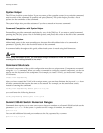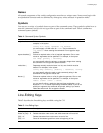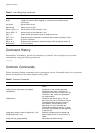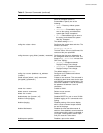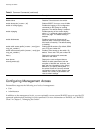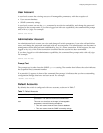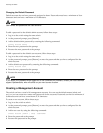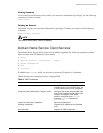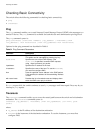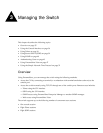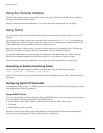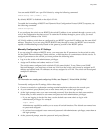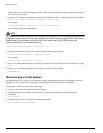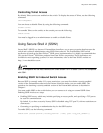
32 Summit 300-48 Switch Software User Guide
Accessing the Switch
Checking Basic Connectivity
The switch offers the following commands for checking basic connectivity:
• ping
• traceroute
Ping
The ping command enables you to send Internet Control Message Protocol (ICMP) echo messages to a
remote IP device. The
ping command is available for both the user and administrator privilege level.
The ping command syntax is:
ping {continuous} {start-size <number>} [<ip_address> | <hostname>] {from
<src_address> | with record-route | from <src_ipaddress> with record-route}
Options for the ping command are described in Table 9.
If a ping request fails, the switch continues to send ping messages until interrupted. Press any key to
interrupt a
ping request.
Traceroute
The traceroute command enables you to trace the routed path between the switch and a destination
endstation. The
traceroute command syntax is:
traceroute [<ip_address> | <hostname>] {from <src_ipaddress>} {ttl <TTL>} {port
<port>}
where:
• ip_address is the IP address of the destination endstation.
• hostname is the hostname of the destination endstation. To use the hostname, you must first
configure DNS.
Table 9: Ping Command Parameters
Parameter Description
continuous Specifies ICMP echo messages to be sent continuously.
This option can be interrupted by pressing any key.
start-size Specifies the size of the ICMP request. If the
start-size is specified, transmits ICMP requests
using 1 byte increments, per packet.
<ipaddress> Specifies the IP address of the host.
<hostname> Specifies the name of the host. To use the hostname,
you must first configure DNS.
from Uses the specified source address in the ICMP packet.
If not specified, the address of the transmitting interface
is used.
with record-route Decodes the list of recorded routes and displays them
when the ICMP echo reply is received.



